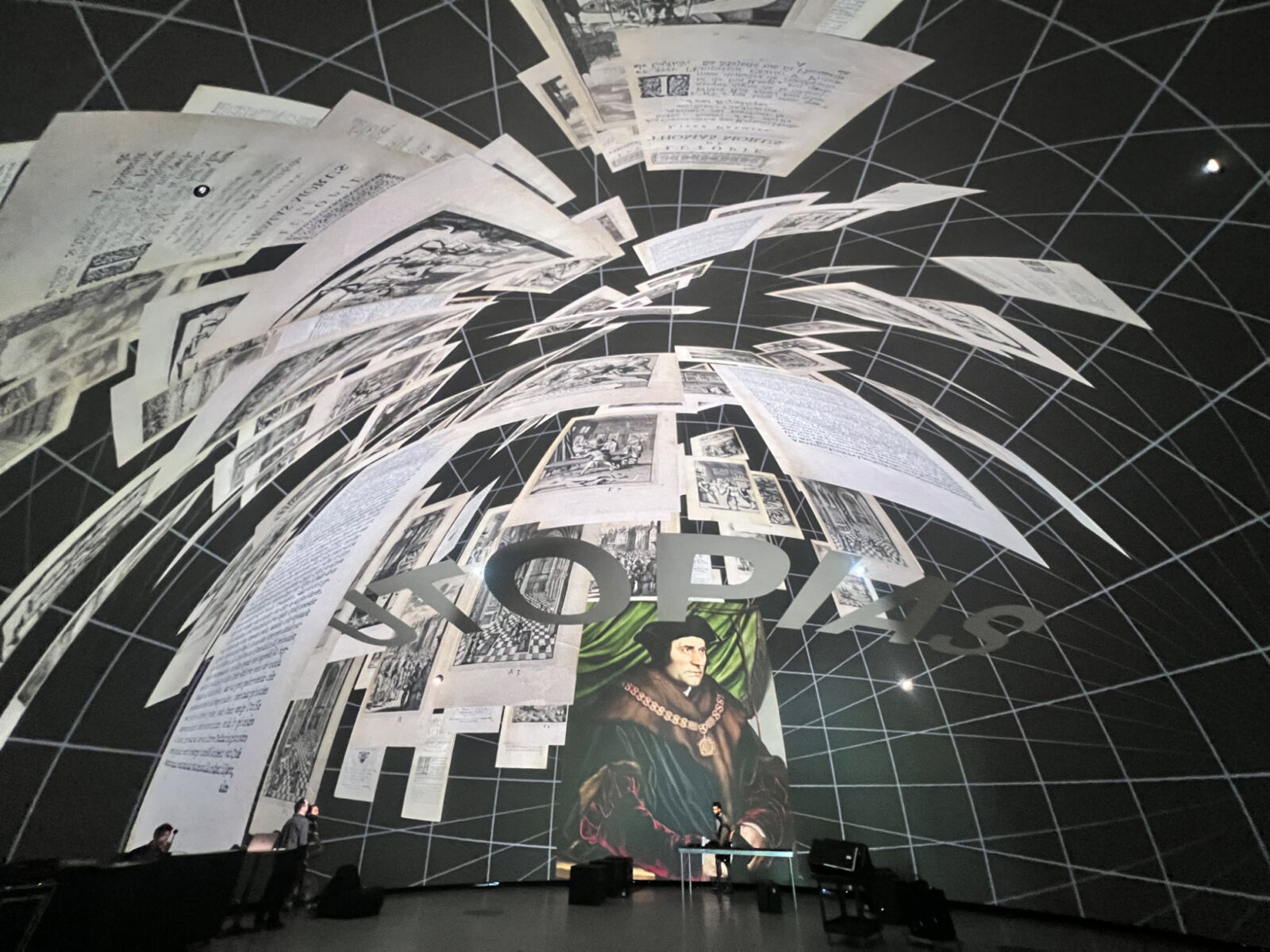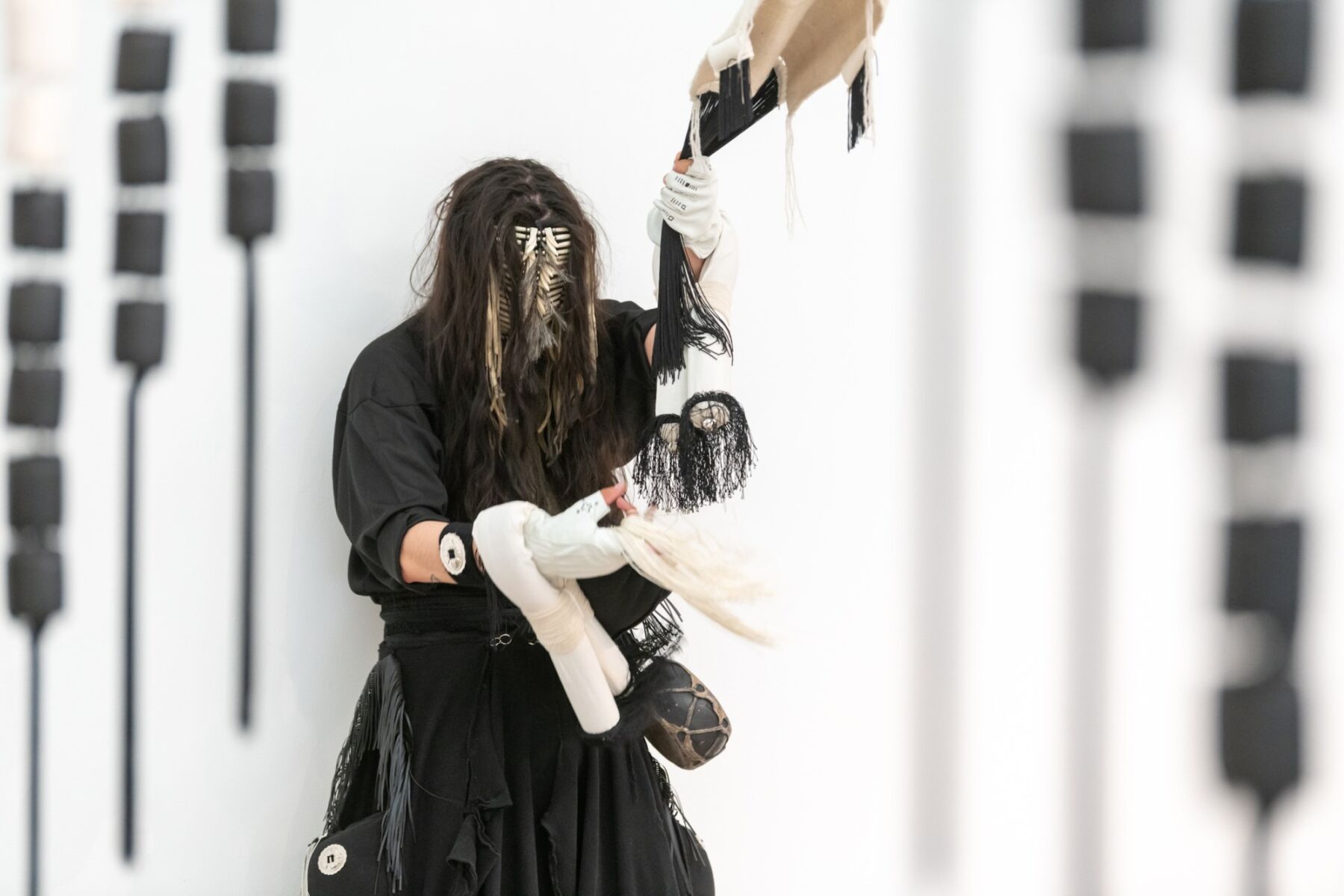Text by Sarah Mackenzie & Maurice Jones
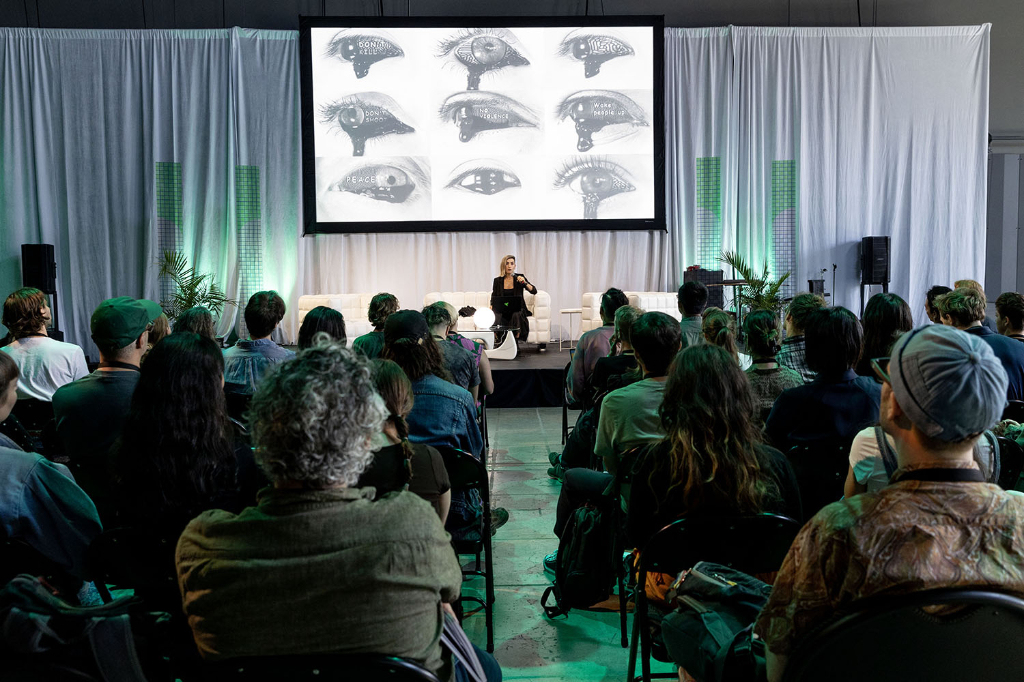
The 10th edition of MUTEK Forum – MUTEK’s annual assembly and showcase of the future of digital creativity – takes place from August 20 to 23, 2024, in Tio’tia:ke/Mooniyang/Montréal, Canada at Monument-National, the Society for Arts and Technology (SAT), and Vino Disco. 45 activities (talks, performances, labs, workshops, masterclasses, film screenings, demos, and meetups) hosted by 135 experts (musicians, filmmakers, technologists, researchers, gaming designers, and digital artists) working across technology and innovation (XR, gaming, music, AI, ecology, architecture, and urban design). On August 19, MUTEK will host the inaugural Future Festivals Summit at the SAT, bringing festival makers to collectively reimagine media art gatherings.
Utopia is a place which cannot be but also cannot be forgotten.
The term “utopia” was coined by Sir Thomas More in his 1516 book “Utopia.” Derived from Ancient Greek, it literally translates to “no place” (from οὐ “not” and τόπος “place”), referring to an imagined society. Over time, utopia’s meaning has evolved to describe an idealised, non-existent society that philosophers, writers, thinkers, and corporations envisioned. This utopian vision is characterised by equality in government, economics, justice, and ecology, aiming to create a harmonious and balanced community for all its inhabitants. A betterment of humanity – proposing models of social organisation that address the flaws and injustices of current systems, offering a glimpse into a more equitable and sustainable future.
Utopias are vantage points. From them, we look back on the future to question the present and make space for progress.
This year’s forum is titled Utopia or Oblivion, and it draws inspiration from the book Utopia or Oblivion: The Prospects for Humanity by the prolific architect, designer, and philosopher R. Buckminster Fuller. The book, an idealistic blueprint for the future, is a collection of essays based on the numerous lectures he delivered around the world during the 1960s.
Fast-forwarding from Fuller’s 1960s vision to 2024, we find a push towards robotic transhumans. Futurist and computer scientist Ray Kurzweil predicts a social utopia where the lines between human and machine, reality and virtual reality, blur, leading to a ‘technological singularity’ where human consciousness merges with machinery. Despite its contributions to progress, technology alone cannot create a utopia, and techno-utopianism often fails, placing us on the edge of a dystopian abyss even as it advances.
One person’s utopia might be another person’s oblivion. As we navigate these different versions of utopia, it becomes clear that not all utopias are inherently positive; some may lead to unintended negative consequences, highlighting the need for critical evaluation and thoughtful implementation of technological advancements. Fuller’s concept of ‘Oblivion’ represents the forgotten or catastrophic elements haunting our collective imagination—our dystopias. These dystopias, like utopias, drive our evolution. Technology paradoxically brings us both utopias and oblivion simultaneously.
Modern-day techno-utopianism is far from Fuller’s original ideas, best expressed through his thoughts on spatial computing, which he envisioned as a transformative tool that could reshape our understanding of space and place, offering new possibilities for creating interconnected, equitable, and sustainable communities. Computing has created a habitable space aligned with our physical reality, transforming our relationship with our built and natural environments. In this context, what type of territorial recognition expresses the new alliance between humans, living beings, and nature? How can we design, create, and inhabit these new open and living territories? Our geographical environment is now mapped and digitised, creating a digital double of our urban spaces. Simultaneously, new tools and concepts are generating limitless virtual spaces. Borders blur, ownership is questioned, and cooperation takes unexpected forms.
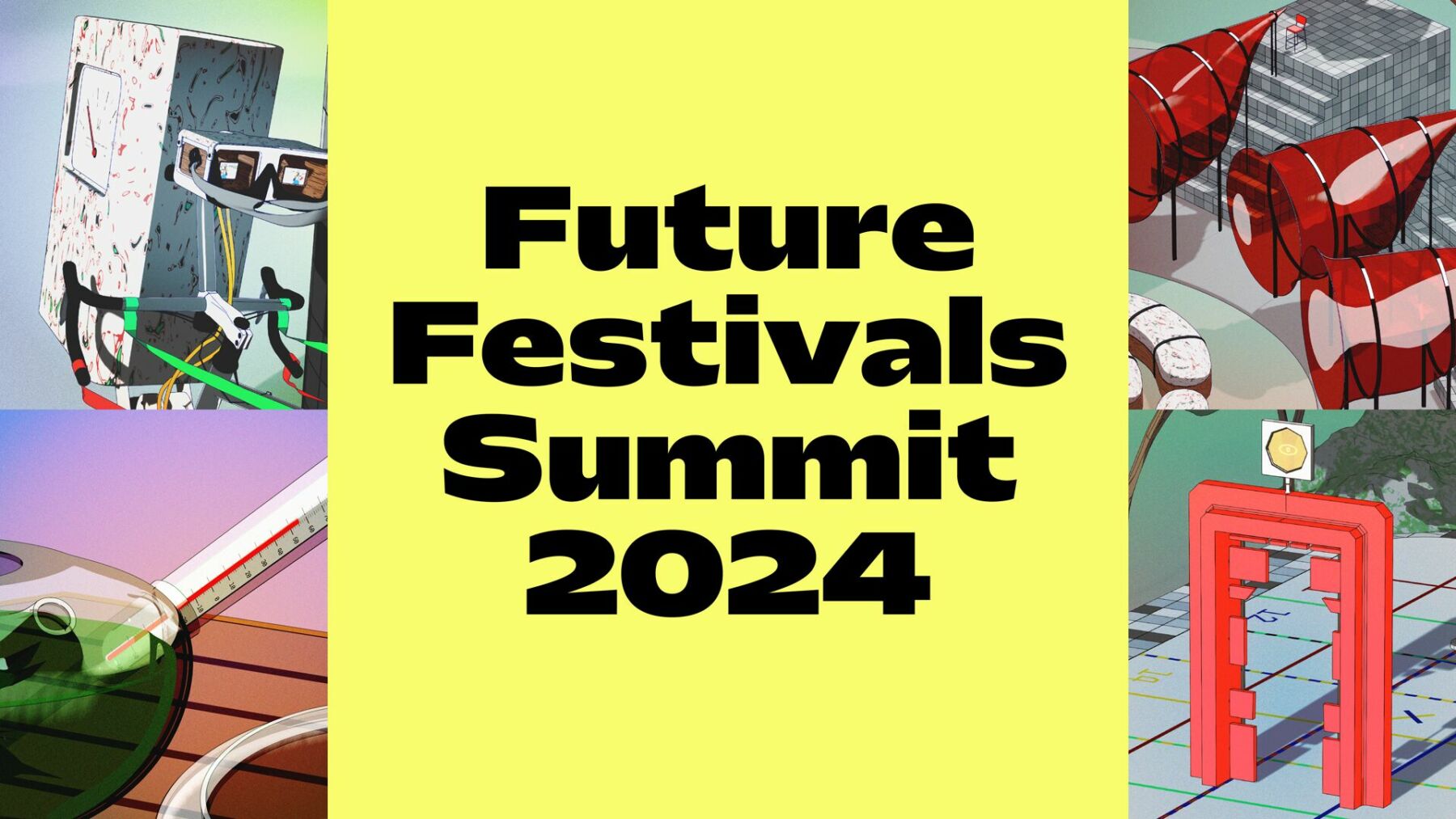
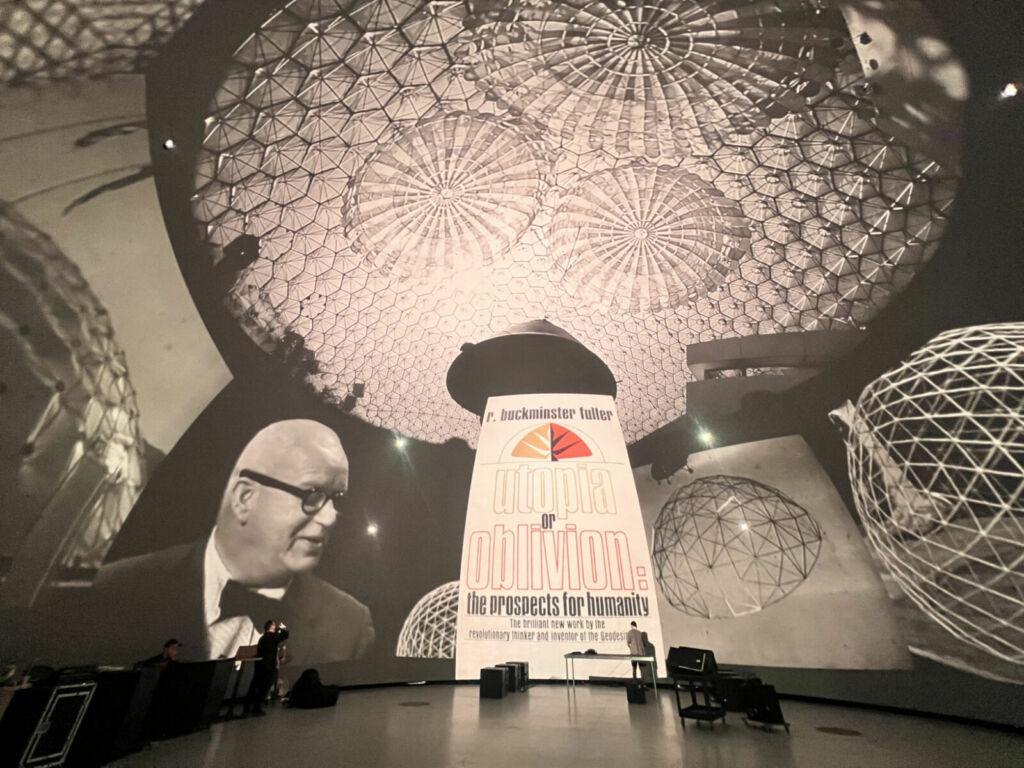
How do we remain human in our hyperconnected world, and how can we create and use technology in an ecological, decolonial, and inclusive fashion? Does the technological hybridisation of physical and virtual worlds and the immersive experiences they provide facilitate the realisation of habitable utopias meeting Fuller’s vision from 60 years ago?
Festivals as Temporary Utopias.
On August 19, MUTEK hosts the inaugural Future Festivals Summit, which explores the idea that festivals are ideal spaces for collectively imagining, experiencing, and creating alternative futures. By bringing together diverse perspectives and fostering creative, visionary ideas, festivals themselves become temporary utopias. These temporary utopias allow speculative futures to materialise in the present, offering a tangible experience of what we aspire to achieve. Through the prefiguration of alternative modes of existence, festivals provide a powerful critique of dominant social trajectories and move beyond the simplistic utopian/dystopian binaries often found in mainstream discourse. The Summit will feature performances and provocations from Liam Young, Nancy Lee, Cassie Thornton, San Farafina (Club Sagacité), Crip Rave, Bani Brusadin (The Influencers), and many more.
MUTEK Forum as a Temporary Utopia.
The idea of temporary utopias, sparked by the Future Festivals Summit, is driving MUTEK Forum’s 10th anniversary. By proposing festivals as temporary utopias, we claim that for a brief moment in time, we may create spaces for the collective imagining, experiencing, and making of alternative futures.
Performances, talks, workshops, labs, film screenings, and cocktails will guide participants through their own utopian adventures at the Monument-National as they explore the grandiose building, including the red velvet curtains of Salle Ludger-Duvernay, Canada’s oldest operating neo-Renaissance theatre. Aligning with the Forum’s theme of questioning realities, the building is said to be haunted [1] with spirits from the infamous Eden Musée—a Victorian waxworks museum that opened in the basement in 1894—allegedly residing within its walls. Each Day at the Forum will follow a specific theme, including AI Ecologies, XR & Immersive Technologies, Digital Art & Gaming, and Music industry.
Some highlights include:
– Into the Wild – AI Ecologies
The Forum’s first day delves into the intersection of AI, ecology, and co-creativity, exploring how new intersections across these fields can contribute to envisioning a diversity of alternative techno-ecological futures. Highlights include performances by Berlin-based AI musician Portrait XO, who will sonify a century of climate data anomalies, and a session with Google DeepMind’s Matthieu Loraine and led by Beth Coleman, electronic musician and researcher from the University of Toronto, to explore the wilder territories of Artificial Intelligence. Lastly, what would a commons for creative AI look like? A utopian vision that intervenors from Mila, Sporobole and Ubisoft La Forge aim to materialise!
Continuing discussions on the last day, the Abundant Intelligences research-creation program will explore culturally grounded AI systems that support Indigenous sovereignty. It will feature Jason Edward Lewis, a digital media theorist, and Jackson Two Bears, a cultural theorist and multimedia artist.

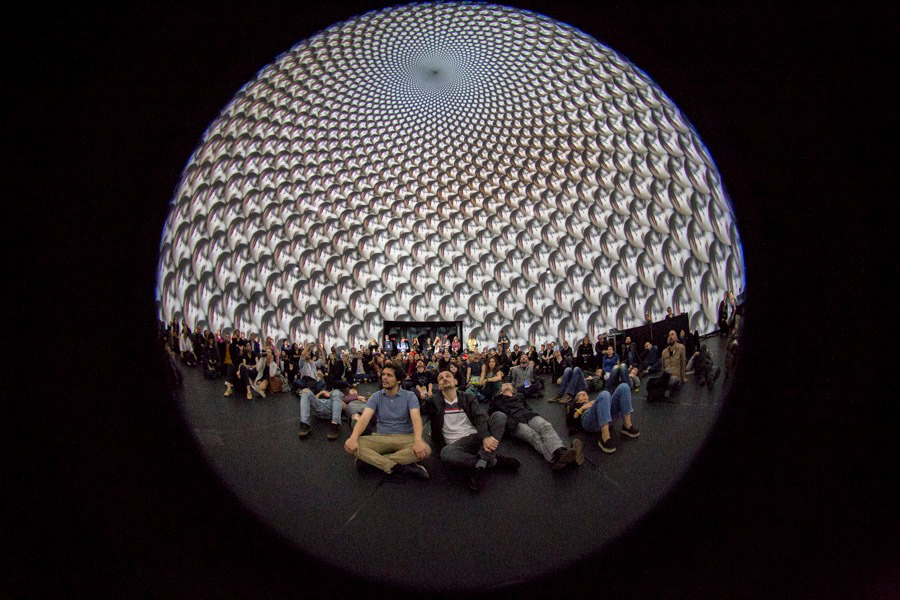
– Converging Realities: Hybrid Utopias in Immersive Technology
Day two examines the role of immersive technologies in creating hybrid utopias. In collaboration with the Society for Arts and Technology (SAT), we will also present an edition of the iX Symposium with immersive talks in the Satosphere dome to examine the consequences of utopian endeavours. Among others, David McConville and Dawn Danby of Spherical will present a keynote performance that challenges the binary notions of utopia and dystopia, revealing their deep entanglement. Multimedia artist Skawennati and Bertrand Nepveu, a metaverse expert and co-founder of Triptyq Capital, will discuss the future of immersive experiences in the age of spatial computing, exploring how these technologies can foster new forms of social organisation and collective imagination exploring diverse utopian visions.
– The Human Connection: New Forms of Storytelling in Digital Art and Gaming
The third day explores the ethical challenges and opportunities presented by new digital spaces in the pursuit of utopian ideals. Dr Pinar Yoldas, an interdisciplinary artist and researcher, will give a keynote on accessibility in gaming and sonic worldbuilding, addressing how these creative fields can contribute to more equitable and inclusive futures. Technologist and AI artist Amelia Winger-Bearskin will screen her generative AI film WOULD LIKE TO BE MIDNIGHT / I WOULD LIKE TO BE SKY, which challenges traditional notions of ownership and territory, offering a vision of utopia that reimagines our relationship with the natural world. We’re also excited to launch a collaboration with the Indigenous Screen Office (ISO), which will host a series of activities exploring XR methodologies rooted in Indigenous practices, aiming to shape a future where the ecosystem is indigenised.
– Resonant Futures: Shaping a More Equitable Future in Music and Technology
The final day draws inspiration from the utopian sonic fictions of Sun Ra and the black and queer histories of electronic music, which created temporary utopias in resistance to dominant social trajectories. FEMINAE NOX, a non-profit aimed at creating equity in the music industry for Black, Brown, Indigenous and racialised femme and gender-non-conforming individuals, is collaborating with MUTEK Forum to host two events. These activities, featuring Fabienne Leys, an artist manager (Kelela) and partner at ATC Management who also serves as PRS’ North American Member Relations lead, will focus on history, equity, access, education, and self-promotion in the music industry.
– Towards materialising our utopian dreams!
Throughout these thematic axes, the Forum emphasises the power of utopias as a lens through which to imagine and create alternative futures, challenging the status quo and offering new possibilities for collective progress. The term utopia is increasingly used in tech jargon across mainstream media. However, utopias must be preserved from being co-opted by Silicon Valley’s glossary of techno-optimist terminology. We need utopias to keep us dreaming and iterating—they shape our future parameters and are aspirational, liminal spaces for creation. Utopias are more than our imaginations running free. They are the only way out.
You can view the full programming here.

